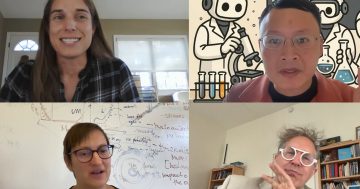 Victorian high school students are to harness the power of online text generators in a new series of writing labs developed by Deakin University academics.
Victorian high school students are to harness the power of online text generators in a new series of writing labs developed by Deakin University academics.
Researcher at Deakin’s Centre for Research for Educational Impact (REDI), Lucinda McKnight said the labs would help educators and students develop ways to use artificial intelligence (AI) in classroom settings to enhance the teaching of written English.
Dr McKnight, who is also the project lead, said Victorian public and private schools would be invited to participate in the project later this year, with tools exempt from the State Government’s current ban on ChatGPT to be used for the study.
“The labs will comply with all school and State Government policies on AI text generators,” Dr McKnight said.
“[This includes] using tools that are not age restricted and that are not banned.”
However, she said any attempt to block access indefinitely to more sophisticated online AI text generators would keep modern writing “in the dark ages”.
“Schools that do not ultimately incorporate these tools into their written English programs are going to disadvantage their students when they move on to tertiary education or the workplace,” Dr McKnight said.
“We need to develop our students as real writers and real writers in today’s world – whether they be sport reporters, copywriters, or playwrights – are already using AI,” she said.
“This technology has been around for years and it’s time we stopped ignoring it.”
Dr McKnight said the future of literacy was learning to collaborate with AI to develop a new hybrid style of writing that merged human capabilities with computer-generated text.
PhD student at Deakin University, Leon Furze said the labs would work with teachers and students to develop the most effective AI learning activities.
Mr Furze said the classes would also touch on the ethics of using AI, the potential implications of inputting personal data into the tools and educate students on academic integrity.
“As a key component of digital literacy, students will be asked to engage critically with AI writers, consider how they are trained, what potential biases or knowledge gaps they may have, and how to identify and counteract these,” Mr Furze said.











